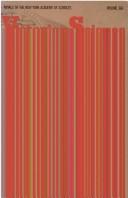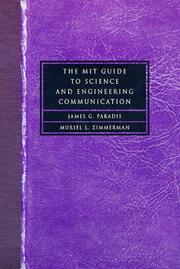| Listing 1 - 8 of 8 |
Sort by
|

ISBN: 1442689056 9781442689053 9781442692305 1442692308 9780802097453 0802097456 1487549350 Year: 2007 Publisher: Toronto, [Ontario] ; Buffalo, [New York] ; London, [England] : University of Toronto Press,
Abstract | Keywords | Export | Availability | Bookmark
 Loading...
Loading...Choose an application
- Reference Manager
- EndNote
- RefWorks (Direct export to RefWorks)
Samuel Butler, Victorian against the Grain is an interdisciplinary collection of essays that provides a critical overview of Butler's career, one which places his multifaceted body of work within the cultural framework of the Victorian age.
Novelists, English --- Critics --- Essayists --- Authors --- Butler, Samuel, --- Butler, S. --- Cellarius, --- Criticism and interpretation. --- Authors, English --- Verenigd Koninkrijk van Groot-Brittannië en Noord-Ierland. --- Great Britain. --- Anglia --- Angliyah --- Briṭanyah --- England and Wales --- Förenade kungariket --- Grã-Bretanha --- Grande-Bretagne --- Grossbritannien --- Igirisu --- Iso-Britannia --- Marea Britanie --- Nagy-Britannia --- Prydain Fawr --- Royaume-Uni --- Saharātchaʻānāčhak --- Storbritannien --- United Kingdom --- United Kingdom of Great Britain and Ireland --- United Kingdom of Great Britain and Northern Ireland --- Velikobritanii͡ --- Wielka Brytania --- Yhdistynyt kuningaskunta --- Northern Ireland --- Scotland --- Wales
Book
ISBN: 0803209177 Year: 1978 Publisher: Lincoln, Neb. University of Nebraska Press
Abstract | Keywords | Export | Availability | Bookmark
 Loading...
Loading...Choose an application
- Reference Manager
- EndNote
- RefWorks (Direct export to RefWorks)
Biologists --- Biology --- Science --- Normal science --- Philosophy of science --- Vitalism --- Life scientists --- Naturalists --- Biography --- Philosophy --- Huxley, Thomas Henry, --- 赫胥黎 --- Great Britain --- Social life and customs --- Huxley, Thomas H. --- Huxley, Thomas Henry

ISBN: 9781442689053 9780802097453 Year: 2016 Publisher: Toronto, Ont. University of Toronto Press
Abstract | Keywords | Export | Availability | Bookmark
 Loading...
Loading...Choose an application
- Reference Manager
- EndNote
- RefWorks (Direct export to RefWorks)
Literature --- Authors, English --- Critics --- Essayists --- Butler, Samuel, --- Criticism and interpretation.

ISBN: 0897661095 9780897661096 Year: 1981 Volume: 360 Publisher: New York (N.Y.): New York Academy of Sciences,
Abstract | Keywords | Export | Availability | Bookmark
 Loading...
Loading...Choose an application
- Reference Manager
- EndNote
- RefWorks (Direct export to RefWorks)
English literature --- Sociology of culture --- anno 1800-1899 --- Great Britain --- Literature and science --- Science --- Didactic literature, English --- Science in literature --- History and criticism --- History --- Social aspects --- Intellectual life --- #WPLT:dd.prof.J.Vendrig --- 5 (09) --- Geschiedenis van wiskunde en natuurwetenschappen --- 5 <09> Geschiedenis van wiskunde en natuurwetenschappen --- Social values in literature --- Natural science --- Science of science --- Sciences --- 5 <09> --- Natural sciences --- English literature - 19th century - History and criticism --- Literature and science - Great Britain - History - 19th century --- Science - Social aspects - Great Britain - History - 19th century --- Didactic literature, English - History and criticism --- Great Britain - Intellectual life - 19th century

ISBN: 0262161427 Year: 1997 Publisher: Cambridge, MA ; London MIT Press
Abstract | Keywords | Export | Availability | Bookmark
 Loading...
Loading...Choose an application
- Reference Manager
- EndNote
- RefWorks (Direct export to RefWorks)
Communicatie in de wetenschap --- Communicatie in engineering --- Communication dans les sciences --- Communication en ingenierie --- Communication in engineering --- Communication in research --- Communication in science --- Communication scientifique --- Communications scientifiques --- Engineering -- Authorship --- Rédaction scientifique et technique --- Rédaction technique --- Science -- Authorship --- Science communication --- Science information --- Sciences -- Art d'écrire --- Scientific communications --- Scientific writing --- Style scientifique --- Style scientifique et technique --- Technical writing --- Technique -- Art d'écrire --- Technologie -- Art d'écrire --- Technology -- Authorship --- Wetenschappelijk opstellen --- Wetenschappelijk redigeren --- Wetenschappelijk schrijven --- Wetenschappelijke stijl --- Communication in science. --- Communication in engineering. --- Technical writing. --- Information scientifique --- Communication en ingénierie --- Sciences --- Art d'écrire --- Communication en ingénierie --- Art d'écrire
Book
ISBN: 0691024235 0691603863 140086030X Year: 1989 Publisher: Princeton (N.J.): Princeton university press
Abstract | Keywords | Export | Availability | Bookmark
 Loading...
Loading...Choose an application
- Reference Manager
- EndNote
- RefWorks (Direct export to RefWorks)
T. H. Huxley (1825-1895) was not only an active protagonist in the religious and scientific upheaval that followed the publication of Darwin's theory of evolution but also a harbinger of the sociobiological debates about the implications of evolution that are now going on. His seminal lecture Evolution and Ethics, reprinted here with its introductory Prolegomena, argues that the human psyche is at war with itself, that humans are alienated in a cosmos that has no special reference to their needs, and that moral societies are of necessity in conflict with the natural conditions of their existence. Seen in the light of current understanding of the mechanisms of evolution, these claims remain as controversial today as they were when Huxley proposed them. In this volume George Williams, one of the best-known evolutionary biologists of our time, asserts that recent biological ideas and data justify a more extreme condemnation of the "cosmic process" than Huxley advocated and more extreme denial that the forces that got us here are capable of maintaining a viable world. James Paradis, an expert in Victorian studies, has written an introduction that sets the celebrated lecture in the context of cultural history, revealing it to be an impressive synthesis of Victorian thinking, as well as a challenge to eighteenth-century assumptions about the harmony of of nature. With Huxley's lecture as a focal point, the three parts of this book unite philosophy and science in a shared quest that recalls their common origins as systems of knowledge.Originally published in 1989.The Princeton Legacy Library uses the latest print-on-demand technology to again make available previously out-of-print books from the distinguished backlist of Princeton University Press. These editions preserve the original texts of these important books while presenting them in durable paperback and hardcover editions. The goal of the Princeton Legacy Library is to vastly increase access to the rich scholarly heritage found in the thousands of books published by Princeton University Press since its founding in 1905.
Book
ISBN: 9781400860302 Year: 2014 Publisher: Princeton, NJ
Abstract | Keywords | Export | Availability | Bookmark
 Loading...
Loading...Choose an application
- Reference Manager
- EndNote
- RefWorks (Direct export to RefWorks)
Digital
ISBN: 9781400860302 9780691603865 Year: 2014 Publisher: Princeton, N.J. Princeton University Press
Abstract | Keywords | Export | Availability | Bookmark
 Loading...
Loading...Choose an application
- Reference Manager
- EndNote
- RefWorks (Direct export to RefWorks)
| Listing 1 - 8 of 8 |
Sort by
|

 Search
Search Feedback
Feedback About UniCat
About UniCat  Help
Help News
News